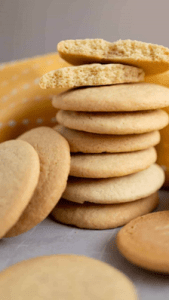Juneteenth commemorates the news of emancipation for enslaved African Americans finally reaching Galveston, Texas on June 19, 1865, over two and a half years after the Emancipation Proclamation had been signed.
Juneteenth was made a federal holiday in 2021, and represents a milestone in the struggle for civil rights and equality. This day, the oldest known celebration commemorating the end of slavery in the United States, has become a day for African Americans to celebrate not only their freedom, but their history, culture and achievements, and to reflect on their heritage, resiliency and tenacity. Discover more resources about Juneteenth, opens a new window in books and film. A selection of books and films are listed below.
Discover how food traditions embody memories, heritage and love in a personal reflection about Juneteenth below, by Stephanie Hartwell-Mandella, Branch Manager of the Corte Madera Library.
Books
Films
Juneteenth Film Collection on Kanopy

Online Resource
Explore the experience and impact of African Americans as recorded by the news media in the online resource, Black Life in America, opens a new window.
Marin City Festival
Celebrate Juneteenth at the largest annual festival of Black African Arts and Culture in the North Bay Area, the 7th Annual Marin City Juneteenth Festival: Ascension and Still we Rise, Monday June 19, starting at 9:00 am.
Juneteenth and Tea Cakes
By Stephanie Hartwell-Mandella
As preparations for Juneteenth celebrations begin around the country, I can say I am uneasy about it. I couldn’t understand my unease, then I started thinking about my grandma’s tea cakes.
Tea cakes, Juneteenth, and voter rights in Texas are connected to historical struggles, cultural heritage, and the fight for justice for African Americans in this country. Tea cakes serve as a symbol of resilience, handed down through generations. Juneteenth, a commemoration of emancipation, represents the triumphs and challenges faced by African Americans. However, the battle for voter rights in Texas casts a shadow over these celebrations, reminding us of the ongoing fight for equality and the need to protect the hard-won gains of the past.
Juneteenth is the holiday celebrated in black communities around the country (and in recent years, around the globe) that marks the date — June 19, 1865 — when enslaved people in Galveston, Texas finally got word that the Emancipation Proclamation had been signed. The government had sent Army couriers from Washington to all slave-holding states to read the Proclamation aloud to all, but by the time Major General Gordon Granger arrived at the Port of Galveston to spread the news of emancipation, two and a half years had passed.
Juneteenth has a historical and cultural significance for the African American community and represents a milestone in the struggle for civil rights and equality. The current voting laws that have been enacted or proposed in Texas, have been criticized for disproportionately affecting minority communities, primarily African Americans. These include restrictions on voting methods, such as limitations on mail-in voting and reduced early voting periods, as well as stricter identification requirements. These measures disenfranchise minority voters and suppress their voices in the democratic process.
In the rich tapestry that is African American culture, certain threads intertwine, weaving stories of resilience and heritage and the pursuit of equality. Food is a big part of that heritage. One of my favorite memories is of my grandma’s tea cakes. Tea cakes hold a special place in African American culinary traditions. These beloved cookies have been prepared and shared for generations.
"Supposedly, tea cakes were made about 200 years ago, in response to the European tea cake, which was actually a cupcake," Robinson explains. Kitchens in the big houses had luxuries like sugar and butter. "At the time of slavery, our folks didn't have refined sugar for the most part. They used molasses or things of that nature. They didn't often have butter, so they used lard. And eggs, sometimes. And baking powder. Maybe a little nutmeg, if they had any. That was pretty much it." (NPR Food to Celebrate Freedom: Tea Cakes For Juneteenth! June 19, 2016, Karen Grigsby Bates)
Tea cakes symbolize how much my grandma loved her family, but they also represent the resilience and tenacity of my ancestors and myself. Baking these treats is not only an act of joyful remembrance of the family but also an act of preserving tradition.
I haven’t made my grandma’s tea cakes in a long time – but I will make them this year. She was old school – a little of this, a pinch of that, so I will summon all of her love, wisdom, and warmth when I make them.
As I savor them, as my diverse family and friends savor them, may we all be mindful of those that struggled before us, how they created beauty from scraps, our daily joy, and our continued struggle for justice and equality for all.
Southern Tea Cakes Recipe
Ingredients
1 stick unsalted butter room temperature - (traditionally lard is used, I have also used coconut oil)
3/4 cup granulated sugar
1 large egg at room temperature
2 tsp pure vanilla extract*
1 1/2 cup all-purpose flour
1/4 tsp salt
1/4 tsp baking soda
*Historically people used what ever they had on hand.... orange, nutmeg, or nothing....
Instructions
- In a medium sized bowl, whisk together the flour, salt and baking soda and set aside.
- In the bowl of your mixer, add butter and sugar and mix together on high speed until fluffy and smooth (about 4-5 minutes).
- Turn mixer to medium speed and add in one egg and vanilla extract and beat until well incorporated.
- Lastly, turn mixer to slow speed and add in flour mixture in intervals of three, beating after each addition to incorporate.
- After dough is well mixed, turn off mixer and remove dough from mixer and add to a ziploc bag and place in your refrigerator for at least one hour to firm up dough.
- Once dough is firm, remove from fridge and preheat your oven to 325 degrees.
- Line your cookie sheet with parchment paper.
- Taking a measuring tablespoon, scoop out cookie dough the size of the tablespoon and roll into a ball. Using your thumb, gently press the center to flatten a bit and place on the tray.
- Do the same for the rest of the dough leaving at least an 1 1/2 inches between each dough ball.
- Bake for 9-11 minutes until golden brown on the edges and remove from the oven.
Cool for 5-10 minutes and serve.






Add a comment to: Juneteenth – Celebrate Freedom, Honor the Struggle & Rise